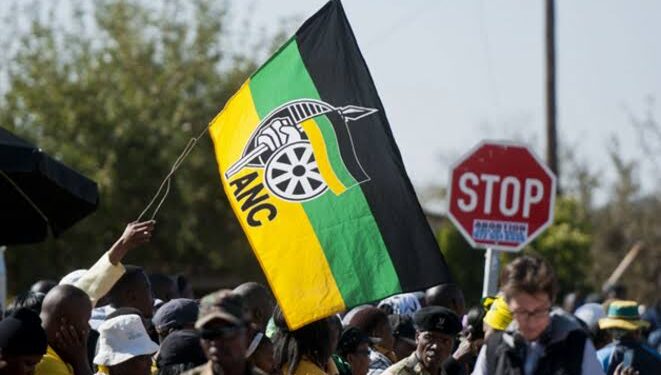South Africa’s African National Congress (ANC) is poised to lose the parliamentary majority it has comfortably held for three decades. Early results from Wednesday’s national election paint a grim picture for the once-dominant party, marking the most significant political shift since the end of apartheid.
Why It Matters
Drone footage from Hospital Hill township in Johannesburg on May 29, 2024, showed long lines of voters—a clear sign that South Africans were eager for change. And change they might get. With 11.3% of polling stations reporting, the ANC’s vote share stands at a mere 42.8%. The pro-business Democratic Alliance (DA) trails at 25.6%, while the radical Economic Freedom Fighters (EFF) lag behind at 8.3%, according to data from the electoral commission.

If these early results hold, the ANC will be forced to broker deals with other parties to govern—a recipe for political chaos in the weeks and months ahead. The market is already reacting: the South African rand plummeted 1% against the U.S. dollar on Thursday, hitting its weakest point in four weeks.
Projections from the Council for Scientific and Industrial Research, shared with state broadcaster SABC, suggest the ANC might end up with roughly 42% of the vote. This is a far cry from its 2019 performance, where it secured 57.5% of the vote, compared to 20.8% for the DA and 10.8% for the EFF.
Under South Africa’s constitution, the newly elected National Assembly will select the next president. Despite the ANC’s poor showing, it is still expected to be the largest party, which means Cyril Ramaphosa is likely to continue as president. However, his weakened position could expose him to leadership challenges within his own party.
What They Are Saying
The ANC has won every national election since Nelson Mandela’s historic victory in 1994, which ended apartheid. But those glory days have faded, replaced by widespread disillusionment over rampant unemployment, crime, frequent power outages, and persistent corruption.
In Gauteng, a key province that includes Johannesburg and the sprawling townships of Soweto and Alexandra, the ANC has garnered just 37.8% of the vote, with the DA at 28.2% and the EFF at 11.1%. This indicates a significant shift in voter sentiment in one of the country’s most economically critical regions.
Adding to the ANC’s woes is the performance of a new party in KwaZulu-Natal, the populous eastern province where Durban is located. Former President Jacob Zuma’s party, uMkhonto we Sizwe (MK), is making waves with 42.3% of the vote, compared to the ANC’s 20.1%. Zuma, who was ousted in 2018 amid numerous scandals, has thrown his support behind MK, named after the ANC’s former armed wing from the apartheid era. His new party appears to be siphoning votes from both the ANC and the EFF, particularly in his home province.
Bottom Line
As the final votes are tallied, South Africans are bracing for a potentially volatile political landscape. The ANC’s decline signals a demand for new leadership and solutions to the country’s enduring problems. Whether the party can adapt and survive in this new era remains to be seen.

















